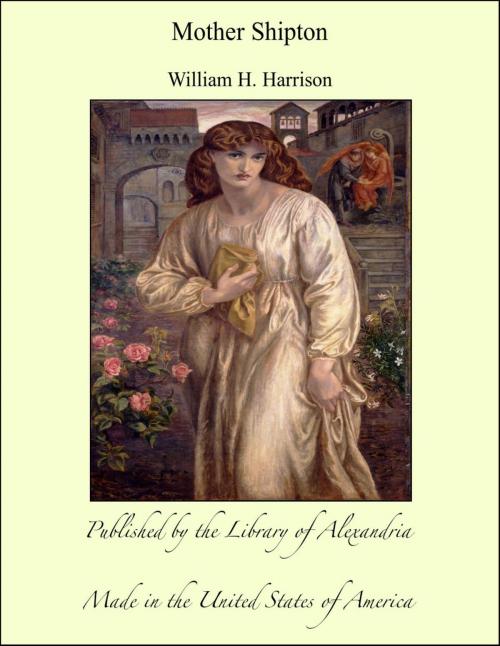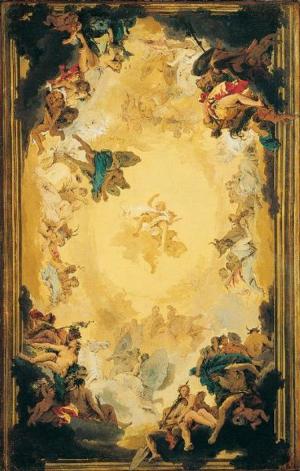| Author: | William H. Harrison | ISBN: | 9781465578037 |
| Publisher: | Library of Alexandria | Publication: | March 8, 2015 |
| Imprint: | Language: | English |
| Author: | William H. Harrison |
| ISBN: | 9781465578037 |
| Publisher: | Library of Alexandria |
| Publication: | March 8, 2015 |
| Imprint: | |
| Language: | English |
This critical investigation of the Mother Shipton literature is published early in 1881, the year in which, according to that celebrated Yorkshire prophetess, the world is to come to an end. The best known of the prophecies attributed to her, is the following; "The world to an end shall come, In eighteen hundred and eighty one." This, and other prophecies, said to have been copied from records of unimpeachable antiquity in the British Museum Library, which prophecies in some cases have been reproduced in alleged fac-simile, have raised curiosity even in the scientific and sceptical mind, and fanned the flame of imagination in the mind idealistic, as to what amount of truth, or error, or deception, may be at the root of the matter. These questions it is my object to attempt to solve by reference to papers of true antiquity in the national possession. Prophecies about the end of the world have always had more or less influence. Whiston predicted that the world would be destroyed on the 13th October, 1736, and crowds of people left London, to see, from neighbouring fields, the destruction of the city, which was to be "the beginning of the end." Numbers of fanatics in Europe, predicted the end of the world in 999. "The scene of the last judgment was expected to be at Jerusalem. In the year 999, the number of pilgrims proceeding eastward, to await the coming of the Lord in that city, was so great that they were compared to a desolating army. Most of them sold their goods and possessions before they quitted Europe, and lived upon the proceeds in the Holy Land. Buildings of every sort were suffered to fall into ruins. It was thought useless to repair them when the end of the world was so near. Many noble edifices were deliberately pulled down. Even churches, usually so well maintained, shared the general neglect. Knights, citizens, and serfs, travelled eastwards in company, taking with them their wives and children, singing psalms as they went, and looking with fearful eyes upon the sky, which they expected each minute to open, and to let the Son of God descend in glory."
This critical investigation of the Mother Shipton literature is published early in 1881, the year in which, according to that celebrated Yorkshire prophetess, the world is to come to an end. The best known of the prophecies attributed to her, is the following; "The world to an end shall come, In eighteen hundred and eighty one." This, and other prophecies, said to have been copied from records of unimpeachable antiquity in the British Museum Library, which prophecies in some cases have been reproduced in alleged fac-simile, have raised curiosity even in the scientific and sceptical mind, and fanned the flame of imagination in the mind idealistic, as to what amount of truth, or error, or deception, may be at the root of the matter. These questions it is my object to attempt to solve by reference to papers of true antiquity in the national possession. Prophecies about the end of the world have always had more or less influence. Whiston predicted that the world would be destroyed on the 13th October, 1736, and crowds of people left London, to see, from neighbouring fields, the destruction of the city, which was to be "the beginning of the end." Numbers of fanatics in Europe, predicted the end of the world in 999. "The scene of the last judgment was expected to be at Jerusalem. In the year 999, the number of pilgrims proceeding eastward, to await the coming of the Lord in that city, was so great that they were compared to a desolating army. Most of them sold their goods and possessions before they quitted Europe, and lived upon the proceeds in the Holy Land. Buildings of every sort were suffered to fall into ruins. It was thought useless to repair them when the end of the world was so near. Many noble edifices were deliberately pulled down. Even churches, usually so well maintained, shared the general neglect. Knights, citizens, and serfs, travelled eastwards in company, taking with them their wives and children, singing psalms as they went, and looking with fearful eyes upon the sky, which they expected each minute to open, and to let the Son of God descend in glory."















